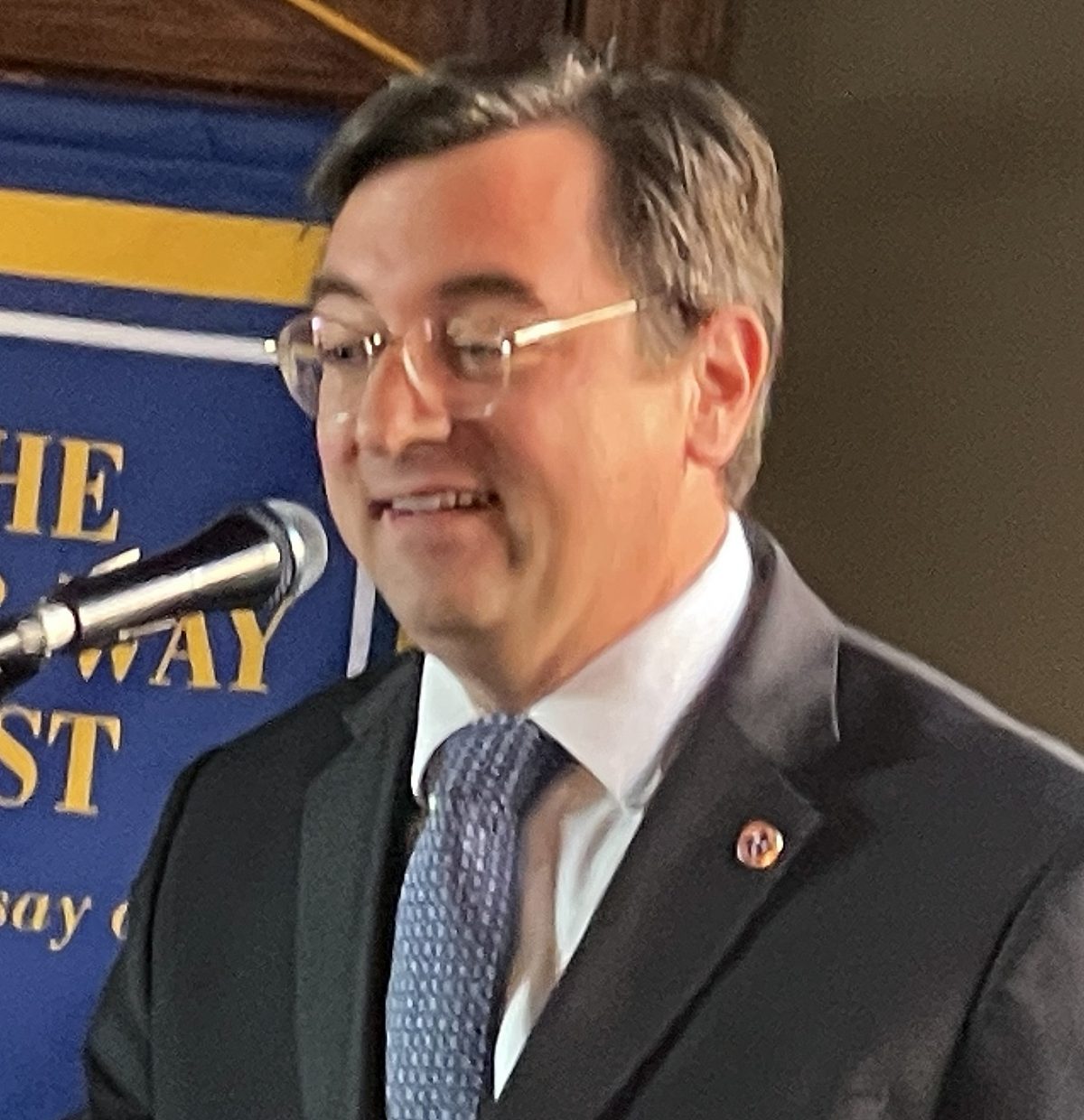Speaking in Memphis on Tuesday, state Attorney General Jonathan Skrmetti laid equal stress on the importance of citizens’ voting on controversial matters and on his own exemption, as an appointed official, from such direct accountability.
The AG’s remarks, in a luncheon speech to the Rotary Club of Memphis, could be applied to a new state law giving his office jurisdiction of post-conviction appeals in death-penalty cases. The state legislature, in April, passed the measure, and Shelby County Criminal Court Judge Paula Skahan deemed it unconstitutional in July, ruling that such jurisdiction is the province of locally elected prosecutors.
The case is now on appeal by the state in the state Court of Criminal Appeals, with a decision expected by spring. The outcome will affect the destiny of Larry McKay, currently on death row for a 1981 double murder in Memphis, as well as any other potential post-conviction appeals involving requests for re-trials based on new evidence, DNA testing, or intellectual disability.
Should Judge Skahan’s ruling be upheld, the McKay case and any other such local one will be the responsibility of Shelby County DA Steve Mulroy.
In what seemed an indirect reference to the case, Skrmetti told the Rotarians “it’s very apparent of late that the legislature has been very active, passing some controversial legislation. And there’s been a lot of litigation about that. More and more people are turning to the courts, when they disagree with things. . . [But] at the end of the day, Tennessee is a democracy. And so when people don’t like the laws that are getting passed, there is a very ready solution out there. And that is to persuade people to vote differently, to persuade legislators to act differently.”
A few minutes later, in a Q&A with Rotary Club members, Skrmetti made a direct reference to the post-conviction issue. “There’s litigation about that, and we should find out from the Court of Criminal Appeals, which way it’s gonna go,”
Further on the matter of accountability, Skrmetti said, “As for the elected versus appointed issue. I’m a big fan of that. I mean, I’m a big beneficiary of the appointment process. … There is a problem if you have an elected AG, because ultimately, the purpose of the attorney general is to represent the legal interests of the state. And that means pursuing legal strategies that further the policies that the state adopts. It’s a servant role. So it’s not my job to say what the law should be. It’s the legislature and the governor to decide … ”
In Tennessee, the state Supreme Court appoints the Attorney General.
Aside from its theoretical aspects, the issue of accountability is a significant one for practical reasons in Tennessee, where public officials and agencies — especially in Davidson (Nashville) and Shelby Counties — increasingly lament what seems to them to be efforts by state government to enlarge the authority of the state vis-a-vis local options. Given the current supermajority control of state government by Republicans, the issue has a partisan aspect as well.
In Davidson County, there is an ongoing showdown between the DA there, Glenn Funk, and Skrmetti’s office, which launched an investigation — involving a surprise raid of Funk’s office — of possible illegal wiretapping by the Nashville DA.
Asked about his occasional interventions in other states’ legal pleadings via de facto amicus briefs (usually in tandem with other “Red states”) Skrmetti said his decisions were based on measuring the impact of such cases on Tennessee.
And he cautioned: “There are people who have politicized things that absolutely should not be political. In the criminal justice realm. There are discrete instances where there’s clear politicization going on. There are also accusations of politicization that are misinformation where there isn’t predication to bring a case, and people are bringing in. But because everybody thinks the other side is weaponizing everything and creates this tit for tat escalation. I’m really concerned about that. And there are people who have abused their authority, and there is absolutely a double standard and enforcement.”
